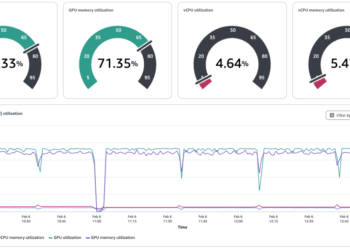This text is a part of a sequence that appears at particular methods HR professionals can leverage generative AI. Extra from the sequence →
HR professionals with generative AI abilities are in excessive demand as firms look to combine extra of the instruments and guarantee they’re used appropriately and ethically.
HR specialists with AI abilities at this time are presently making $35,000 extra a 12 months on common than these with out them, in line with inside knowledge from Lightcast, a labor market analytics firm. In the end, the highest priorities for these AI-skilled HR leaders might be leveraging the expertise to assist firms extra effectively discover one of the best expertise, and to maximise the output of present expertise, specialists say.
“AI will not be going to exchange HR,” mentioned Michael Beygelman, founding father of Claro Analytics, a individuals analytics and expertise platform, and evp of product at WilsonHCG. “Individuals with AI abilities will exchange HR those who don’t have the AI abilities,” he mentioned.
Utilizing AI to streamline and enhance expertise acquisition and recruitment processes is presently the largest space of curiosity. Demand for expertise acquisition and recruiting managers with AI abilities grew nearly 60% up to now two years, in line with inside knowledge from Lightcast. For others in additional common HR roles, demand for candidates with these abilities grew 38%.
“Expertise acquisition is constantly the most important line merchandise in most HR groups’ budgets and AI is uniquely effectively positioned to assist maximize the ROI of expertise acquisition actions,” mentioned Will Markow, senior economist at Lightcast.
AI instruments may also help full quite a few time-consuming duties in recruitment, and when leveraged appropriately can save organizations important quantities of money and time spent on hiring the correct candidates. They may also help sift by hundreds of resumes and filter high candidates, write job descriptions, and generate and coordinate communications and interview scheduling. Some are even utilizing AI-powered video interviews which file and gauge candidate responses.
However moral issues stay a key challenge with regards to AI hiring instruments, notably bias and whether or not new processes might run afoul of present anti-discrimination hiring legal guidelines. No federal legislation exists within the U.S. particularly masking using AI within the hiring course of, although if such instruments are used to make discriminatory hiring selections it might violate Title VII of the Civil Rights Act.
Some states and cities now have particular laws concerning AI in hiring, like New York Metropolis. That legislation stipulates that employers should notify candidates of the instruments that might be used within the hiring course of. Employers selecting to make use of AI should additionally conduct yearly bias audits of the instruments and publish outcomes publicly.
Accordingly, HR professionals with AI abilities must guarantee they perceive how the hiring instruments work to defend any claims of biased outcomes and shield their organizations in opposition to lawsuits. “You can open your self as much as important authorized points if it seems that software program does, in actual fact, result in extra biased hiring outcomes,” Markow mentioned. “So I believe it’s crucial that organizations leverage AI in a manner that’s explainable and defensible.”
Past the recruitment course of, AI can be used to assist streamline many duties and duties for HR groups round coaching and profession growth. It could actually assist establish abilities gaps and create focused coaching packages, and establish high performers and different metrics to tell promotional alternatives. It could actually additionally assist establish abilities adjacencies throughout organizations and create pathways for inside profession mobility.
“It’s serving to HR groups to higher perceive the way to get essentially the most out of the individuals they have already got,” Markow mentioned.
HR professionals’ AI abilities can even turn out to be useful when organizations are contemplating when to make use of AI versus when to not use it. “Probably the most precious AI abilities for HR practitioners are understanding when you could preserve a human within the loop. It’s essential for organizations to do not forget that their persons are going to be those who needs to be making the selections, not simply the AI.”
“AI will not be going to assist console a grieving worker, and AI will not be going that will help you construct the corporate tradition that you simply envision,” he mentioned.
“Particularly while you’re speaking about HR subjects, you actually need somebody from HR concerned in order that it doesn’t simply grow to be a tech answer and never a individuals answer,” mentioned Emily Rose McRae, senior director analyst at Gartner.
However a key challenge stays — few HR leaders even have a lot expertise with AI tech, and plenty of stay confused or intimidated by it. And their organizations are doing little to assist. Over 80% of senior leaders prioritize attracting employees who’re educated of AI, but nearly 40% mentioned they’re actively working to practice and upscale workers on AI absolutely and at scale, in line with EY’s newest AI pulse survey.
“Plenty of HR persons are intimidated by it and don’t really feel snug understanding what it’s all about,” mentioned Josh Bersin, international business analyst and CEO of the Josh Bersin Firm.
“There’s a perception that as a way to perceive AI, it’s important to be a pc scientist. And that’s completely not true. You don’t need to know the way to develop AI to be taught what it’s and the way to use it and the way to implement it,” he added.







